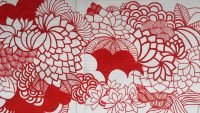How a Snowball Inspired a Life Devoted to Better Death
“I cannot tell you the rapture I felt holding that in my hand. The coldness dropping onto my burning skin, the miracle of it all, the fascination as I watched it melt and turn into water. In that moment, just being any part of this planet, in this universe, mattered more to me than whether I lived or died. That little snowball packed all the inspiration I needed to both try to live — and be OK if I did not.”
In a TedTalk, viewed more than 12 million times, BJ Miller shares this story of a “stolen moment” with a snowball, smuggled into a burn unit by his nurse after a college prank nearly killed him and left him a triple amputee.
Miller is a hospice and palliative care doctor who speaks internationally about living well in the face of illness and death. His experience being disabled, as well as his training in art history and medicine, have shaped his life’s work. He currently sees patients and families via Mettle Health.
Miller spoke with Solace about redesigning the health care and end-of-life systems to be more “human-centered.”
How did your time as a patient shape your career?
“I was very fortunate. From the doctors, nurses, the techs, everyone, I got wonderful, beautiful care. I couldn’t be more grateful. Watching these very good people do amazing work in spite of the system, in spite of the facilities, that’s what really turned me on to part of the issue — both the amazing potential of health care and how we artificially hold ourselves back in the ways we are describing. That opened my eyes to the potential and problems of health care, and I’m interested in both.
How has your disability informed your mission?
“Going out in the world as a disabled person, watching how we as a society treat people who are disabled or have some obvious or hidden illness, it borders on shameful — well, that’s the word. We tend to shame and isolate people who are perceived to be compromised. What pushed me into medicine was my critique of the health care system and the idea that in society, our technology far outpaced our social capacity to live with disability, to develop our moral sense of what to do with each other when we are not fully functional by some standard.”
How would you redesign our health care system?
“To say that this health care system that we have now was designed at all is probably a misstatement. It’s just this slapped together thing that’s evolved over years and has suffered for a lack of an overarching design principle. The design flaw essentially is — if anything — that we are focused on diseases, not people. And you feel it, you feel it in so many different ways. What I and others are calling for is to revisit our principles and to reorient around the primacy of a patient experience.”
Give us the designer’s view of what’s wrong.
“Those of us who have spent time in a hospital, those are not hospitable places. These are not designed for patients. You are homogenized. The best case scenario is that the patient kind of gets out of the way. So, why are our nation’s best architects not involved in developing health care facilities?
This is where people are their most vulnerable, their most tender, their most sensitive. You’d think that anyone designing an environment of care would be exceedingly interested in the health care setting because it is so dang poignant, but as we stand now, that’s not the case at all.
Hospitals tend to be ugly as hell, you’d never want to spend any time there.”
Can you explain for us the difference between necessary and unnecessary suffering?
“I would be a real basket case, a jerk, I don’t know what I’d be, (but) something not good, if I hadn’t suffered. We learn so much by bumping up against things that we can’t change. I have gained too much from suffering in my life. So, knowing we can’t take away all suffering, knowing that it is too important for our personal and social development as a species, it became important to discern between natural suffering that just comes your way no matter what you do versus the man-made stuff. When we in the health care system, we the people, become the source of the suffering, not Mother Nature … for me that’s a very different enterprise. The man-made stuff, that’s what gets my activist heart going, that’s the stuff we change, because we can change.”
If you are one person working in a larger, likely imperfect system, how can you make your care more “human-centered”?
“The simplest thing we can do is just keep our eyes open and acknowledge the reality that our patients are dealing with, and just acknowledge it. Bedside manner is not a side thing, it’s a main thing. It’s not just a nicety, it is essential; compassion, empathy (are) essential. You can be kind, you can be patient — that basic getting back to human-to-human — that’s so much of what we can do.
You can bring your humor, your style, be a human being yourself, dare to be a human, not just a technician.”
How can care providers avoid burnout while staying empathetic?
“Empathy is such a double-edge. If I’m an empathetic person and I’m seeing 30 patients a day who are suffering, I’m going to be taking on so much suffering in any one day. And the more empathetic I am, the more suffering I’m going to see. You have to acknowledge that and metabolize that stuff. If you aren’t careful, you start convincing yourself that compassion and empathy are hazards. And (think) if I could just ‘numb out’ and not feel anything, I’d be better at my job. Of course, the truth is, you’re not going to be better at your job, you’re going to be worse. Really, looking empathy in the eye and saying, ‘Yes, empathy is essential and good’ and it means it is beholden on me to process all this pain I’m seeing.”
In your TedTalk, you mention the power of baking cookies. Can you explain how they changed the end-of-life experience for your patients?
“There is something especially about the sense of smell that is so primal, so immediate. It can transport us just about anywhere. Most of our clients (when Miller worked at the San Francisco-based Zen hospice), our patients, our residents, weren’t in a position to eat much. But just the smells walking through the house, in a primal brainstem-level, told them they were in a home, not a facility. That they were a human being, not a ‘disease vector.’ It was almost symbolic as well as just pleasant.
Tending to the senses, whether it is the smell of baked cookies or lighting that isn’t fluorescent and horrible or the ability to look out a window — fundamental, basic stuff — that’s where so much of the action is. This isn’t a theory. This is what I saw. People would come with us and live way longer because all of a sudden they were treated as a human being again.”
BJ Miller facilitates monthly discussions on topics related to coping with serious illness, disability and end of life through the company he founded, Mettle Health. He is a co-author of the book, A Beginner’s Guide to the End, appears in the documentary End Game and a recent NYT piece. He formerly served as the Executive Director of the Zen Hospice Project, now named the Zen Caregiving Project.
Solace is now Tulip Cremation, the nation’s largest online direct cremation services provider, delivering world-class and compassionate care 24/7.
Proudly providing:
Denver cremation services
Los Angeles cremation services
Portland cremation services
San Francisco cremation services
Seattle cremation services



